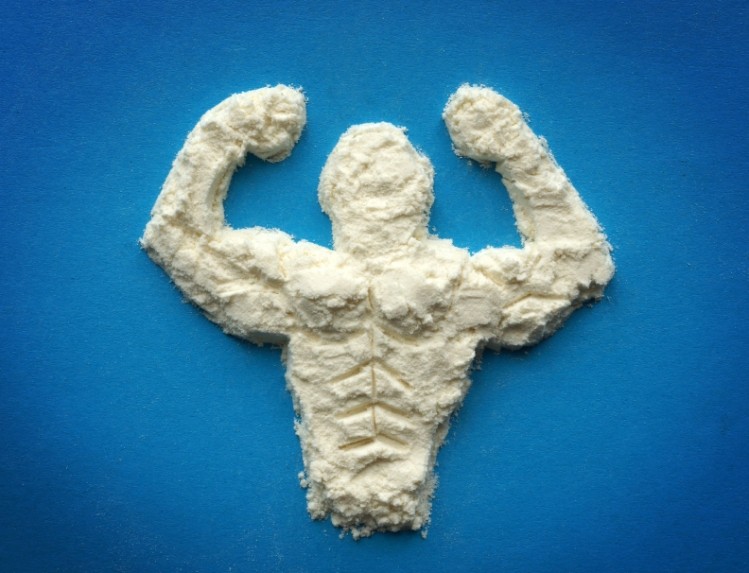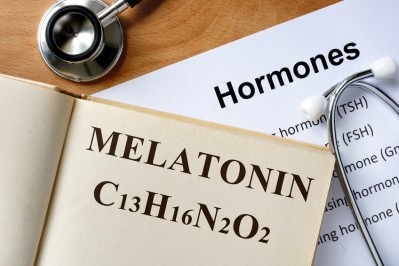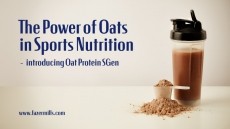Claims protein supplementation adds whey more muscle disputed

Writing in the British Journal of Sports Medicine, the team acknowledge the gains to muscle when dietary protein supplementation is combined with resistance exercise training (RET).
However, trials amongst 1863 human subjects found a limit to the amount of protein that is beneficial, plateauing at around 1.6 grams of dietary protein per kilogram of bodyweight per day (g/kg/bw/d).
In addition the team suggest that RET is a “far more potent stimulus for increasing muscle strength than the addition of dietary protein supplementation”.
“Protein intake is critical for muscle health and there is mounting research that suggests the recommended dietary allowance, of 0.8 g protein per kg per days, is too low,” said lead study author Robert Morton, a PhD student in the Exercise Metabolism Research Group at McMaster University.
“We will see more and more research, especially as our populations age, challenging that number.”
The research taps into a number of industry trends in which aspects of sports nutrition overlap into objectives outlined in life stage nutrition, in particular healthy ageing.
RET in combination with dietary protein supplementation is considered standard practice nowadays amongst recreational exercisers as well as athletes.
Protein supplementation’s ability to maintain and preserve muscle mass and strength is also a recommended for the elderly participating in RET.
Review criteria
The review took 49 studies that were made up of randomised controlled trials with RET of more than six weeks in duration and dietary protein supplementation.
At least one study group had to be given a protein supplement that was not co-ingested with other potentially hypertrophic agents such as creatine, β-HMB, or testosterone-enhancing compounds.
Only trials with humans who were healthy and not energy-restricted were accepted.
Data showed that dietary protein supplementation significantly increased changes in strength, where the one-repetition-maximum increased by 2.49 kg.
Gains in fat-free mass (FFM) increased by 0.30 kg during periods of prolonged RET.
Dietary protein supplementation during RET is more effective at increasing changes in FFM in resistance-trained individuals (0.75 kg) and less effective in older individuals (−0.01 kg).
Protein supplementation beyond total protein intakes of 1.62 g/kg/day resulted in no further RET-induced gains in FFM.
“Protein supplementation may slightly augment changes in 1RM (~9%), which may be important for those competing in powerlifting or weightlifting,” the study said.
“It is pragmatic to advocate that if an increase in 1RM is the objective of an RET programme, a sufficient amount of work and practice at or around the 1RM is far more influential than protein supplementation.”
Healthy ageing
In commenting on the effect protein supplementation had on older individuals the study authors pointed to their tendency to be anabolically resistant.
To counter this higher per-meal protein doses would be required to achieve similar rates of muscle protein synthesis (MPS) compared with younger participants.
“The average supplemental daily protein dose given to older participants was surprisingly low (20±18 g/day); thus, it is perhaps not surprising that we did not find that older individuals were responsive to protein supplementation,” the study said.
“Though age did not affect the RET-induced change in fibre cross-sectional area (CSA), the negative effect age had on changes in FFM leads us to speculate that even though exercise sensitises muscle to the effect of protein ingestion, older persons have an increased need for higher protein intakes to optimally respond to this effect and see gains in FFM.”
Source: British Journal of Sports Medicine
Published online ahead of print: doi.org/10.1136/bjsports-2017-097608
“A systematic review, meta-analysis and meta-regression of the effect of protein supplementation on resistance training-induced gains in muscle mass and strength in healthy adults.”
Authors: Robert Morton et al.















